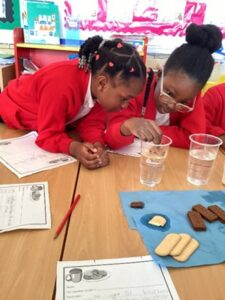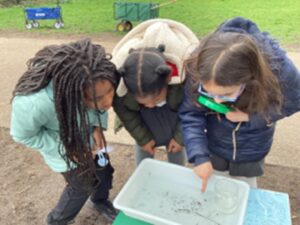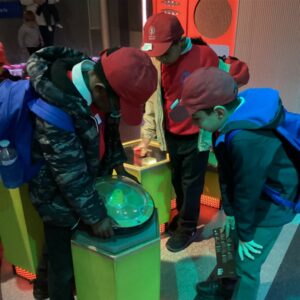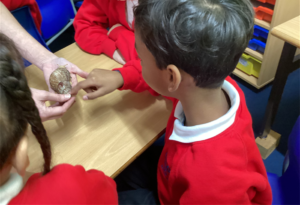Intent
Our science curriculum aims to develop a sense of excitement and curiosity about natural phenomena and an understanding of how the scientific community contributes to our past, present and future. We want pupils to develop complex knowledge of each area of science: Biology, Chemistry and Physics. We also want them to adopt a broad range of skills in working scientifically. The scheme of work is inclusive and meaningful and aims to enable children to make links between their science learning and their lives outside the classroom. Studying science allows them to appreciate how new knowledge and skills can be fundamental to solving arising global challenges. To this end, our curriculum aims to encourage critical thinking and empower pupils to question the 'hows' and 'whys' of the world around them.
The scheme encourages:
- A strong focus on developing knowledge alongside scientific skills.
- Curiosity and excitement about familiar and unknown observations.
- Challenging misconceptions and demystifying truths.
- Continuous progression by building on practical and investigative skills across all units.
- Critical thinking, with the ability to ask perceptive questions and explain and analyse evidence.
- Development of scientific literacy using wide-ranging, specialist vocabulary.
Implementation
The Kapow curriculum which we follow has been developed following the Ofsted Research review into Science. It addresses the findings through a scheme based on the following key strands
- Scientific knowledge and understanding of:
- Biology - living organisms and vital processes.
- Chemistry - matter and its properties.
- Physics - how the world we live in 'works'.
- Working scientifically - processes and methods of science to answer questions about the world around us.
- Science in action - uses and implications of science in the past, present and for the future.




Kapow Primary's Science scheme is a spiral curriculum, with essential knowledge and skills revisited with increasing complexity, allowing pupils to revise and build on their prior learning. A range of engaging recall activities promote frequent pupil reflection on prior learning. Teachers assess how much has been learned and remembered to ensure pupils are able to approach new learning with confidence. The science in action strand is interwoven throughout the scheme to make the concepts and skills relevant to pupils and inspiring for future application.
Each unit is based on one of the key disciplines: Biology, Chemistry and Physics. The National Curriculum content is grouped into these six areas:
- Plants
- Animals, including humans
- Living things and habitats
- Materials
- Energy
- Forces, Earth and space
Pupils explore knowledge and conceptual understanding though engaging activities and learning specialist vocabulary. The 'working scientifically' skills are integrated with conceptual understanding rather than taught discretely. This provides frequent, relevant opportunities for developing scientific enquiry skills. The scheme utilises practical activities that aid in the progression of individual skills and provides opportunities for full investigations.
Science is taught weekly and lessons incorporate various activities including paired and group work; practical and creative tasks; computer-based sessions and collaborative tasks. This variety ensures that lessons are engaging and appealing to pupils. Each year group has an additional 'Making connections' unit that delves beyond the essential curriculum, assimilating prior knowledge and skills to evoke excitement and to provide an additional method of assessing scientific attainment.
Knowledge organisers for each unit help identify key knowledge and technical language which pupils must learn and remember. These are shared with parents at termly meetings and are also used in class to link learning between lessons.
This website is a useful place for pupils to extend their curiosity about science outside the classroom:








